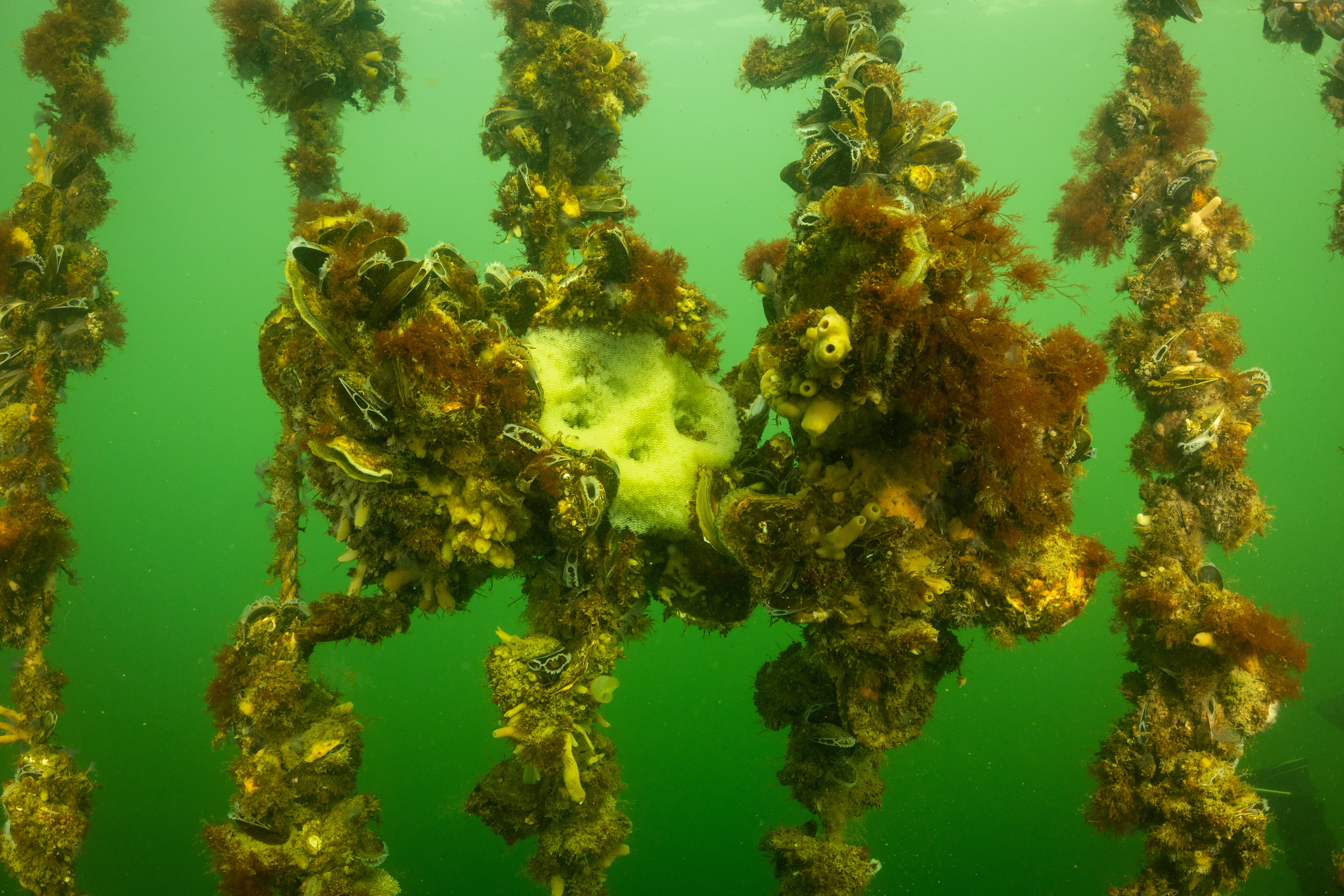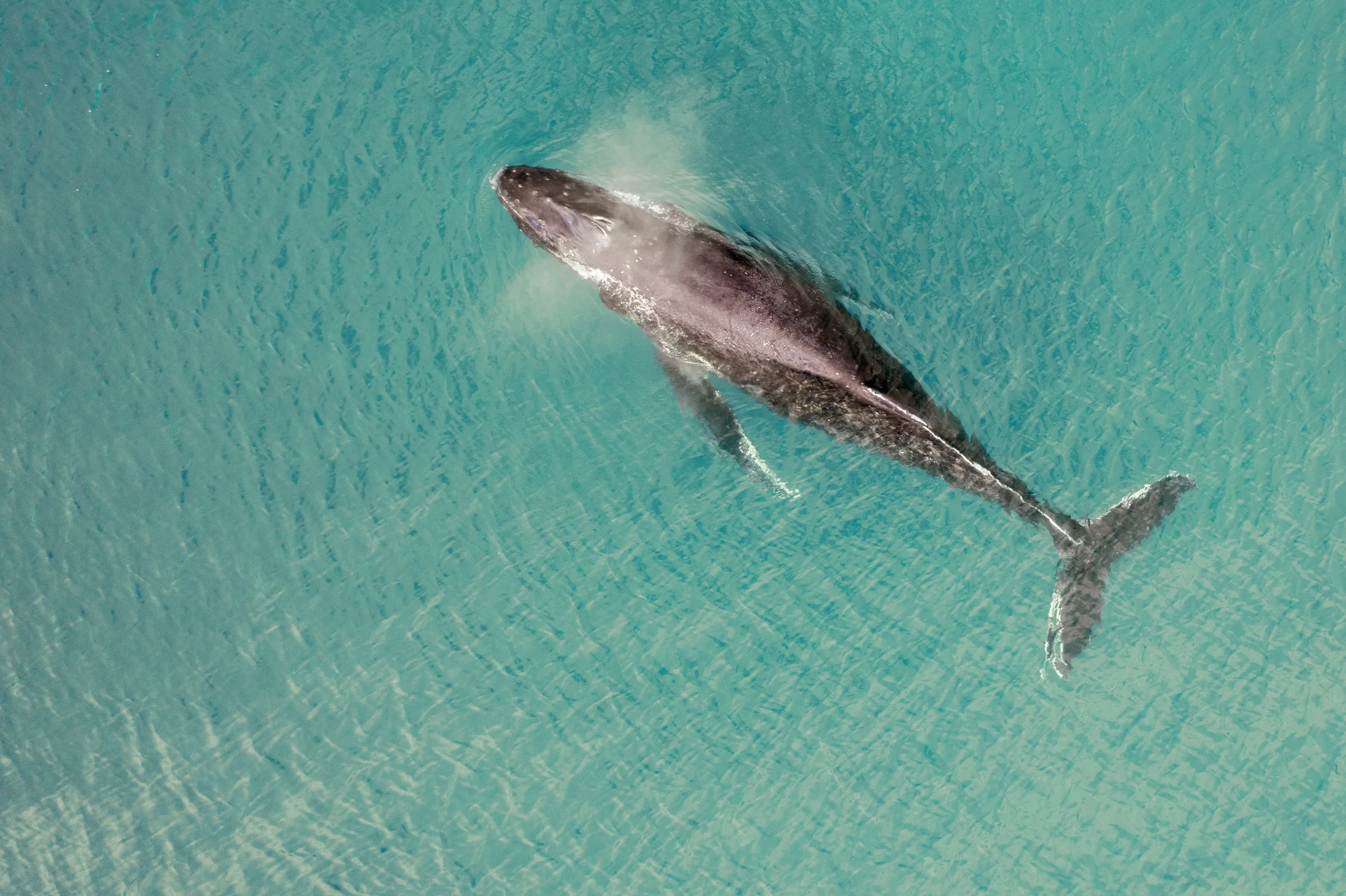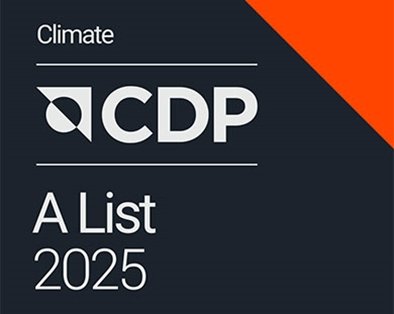Marine mammals like whales play a crucial role in our ecosystem. These giants can store up to 33 tons of CO2 in their bodies, which helps maintain a healthy environment and fights against climate change.
Despite protection efforts, many whale species are vulnerable or endangered. Every year, roughly 300,000 whales (of all species) are killed globally due to climate change, which impacts their food supply, pollution, shipping strikes, and habitat loss.
Working with WWF, Vodacom is trying to help change this by using cutting-edge artificial intelligence (AI), Internet of Things (IoT) technology and infrared cameras to help minimise whale entanglements in mussel farming ropes.
An emerging warning system
Based off the southwest coast of South Africa, Saldanha Bay is where most of the country's mussel farming occurs. Using raft culture techniques, each raft has hundreds of mussel ropes hanging vertically from 6-9 metres into the sea.
Left for 18-24 months, the ropes become naturally covered by settling mussels and other organisms where they feed and grow.

This method of mussel farming has minimal impact on the environment as opposed to intensive fish farming. However, Saldanha Bay's natural deep harbour is also visited each year by Southern right whales, humpback and Bryde's whales, who migrate here on their way to food-rich Antarctic waters to feed and rear their calves.
As the whales migrate south, they can swim through dislodged ropes and get entangled.
We've created an innovative AI-powered early warning system using IoT sensors in infrared cameras connected to hydrophones. When whales and other large marine mammals are detected in the bay area, the system alerts mussel farmers via their mobile phones.
Even better, if entanglement occurs, the system automatically alerts South Africa's National Sea Rescue Institute, which works closely with the farmers to quickly and safely free any whales in distress.
This project helps minimise the harmful effects of rope mussel farming and demonstrates the power of technology to tackle sustainability challenges and protect marine life and livelihoods.
Protecting ocean wildlife
It's of the utmost importance that we maintain the health of our oceans – they are home to a diverse range of marine life and provide livelihoods and food for millions of people. However, new data from WWF's Living Planet Report indicates a worrying decline in the state of our oceans.
Over 40% of the oceans have been negatively altered in the last 50 years, with significant decreases in most marine species.
Vodacom is also expanding its partnership to promote marine ecosystem awareness and ocean literacy under WWF-SASSI (South African Sustainable Seafood Initiative).
Vodacom is working with seafood suppliers, vendors and citizens to increase awareness, encourage voluntary compliance with marine resources laws, and enable them by providing tools like a pocket guide, two free apps (SASSI App and FishID app), and a comprehensive website to help them make informed seafood choices.
More recently, Vodacom enabled WWF SASSI to develop an educational digital game (The Ocean Challenge) to reach digitally savvy youth and help them increase their awareness while having fun.
These tools will be rolled out through our Vodacom network, including the existing Vodacom Foundation schools' network, starting with schools in coastal areas to raise awareness amongst young people about ocean literacy and sustainable seafood.
Learn more about how we are using IoT to protect biodiversity

























